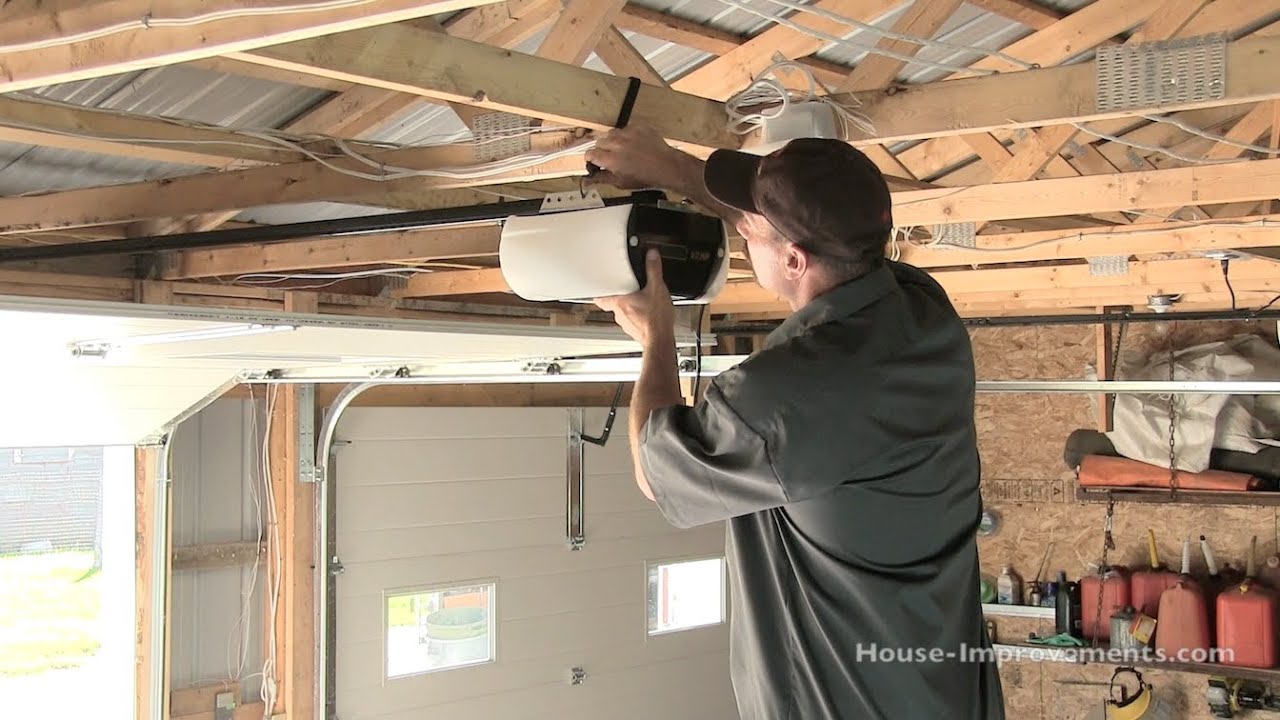
Garage Doors and Parts – Role of Conduit in Garage Door Openers is crucial for both safety and functionality. Conduit protects the wiring inside garage door opener systems. Without it, the wiring could be exposed to physical damage, moisture, or wear over time. This article will explore the role of conduit, its importance in ensuring the safety of your system, and how it contributes to the longevity of the opener.
Conduit is a protective casing used to house electrical wiring. It is made of durable materials such as plastic or metal. The conduit is designed to shield the wiring from physical damage, moisture, and corrosion. It also helps organize the wiring, preventing tangling or disruption of electrical flow. Without conduit, wires would be exposed and vulnerable to damage. This could result in dangerous electrical shorts or malfunctions.
“Read about: Organizing Your Garage: Tips for Hanging Bikes and Large Items with Ease”
Garage door openers rely on electrical wiring to operate smoothly. The wiring connects various components, such as the motor, sensors, and control panel. Exposed wires are at risk of being damaged by accidental impact or environmental factors. Conduit helps protect the wiring from these hazards. It also ensures that the electrical connections remain intact, reducing the risk of malfunction. Over time, undamaged wiring increases the lifespan of the entire garage door opener system.
Conduit acts as a protective shield for the electrical wiring in your garage door opener. It guards against physical damage, such as cuts, abrasions, and impacts. If wiring is exposed, it can easily be damaged by objects or harsh conditions. Conduit also protects the wiring from moisture, which can cause short circuits. Metal conduit is particularly effective in areas where exposure to water is likely. Plastic conduit is used in dry areas, providing sufficient protection without adding unnecessary weight.
Conduit comes in various materials, each suited for different conditions. Metal conduit, such as galvanized steel or aluminum, is often used in outdoor or high-hazard environments. It provides excellent protection against physical damage and harsh weather conditions. Plastic conduit, typically made from PVC, is lightweight and resistant to corrosion. It is commonly used in residential applications where moisture and impact risks are lower. Both materials offer significant protection, but the choice depends on the installation environment.
Several types of conduit can be used for garage door opener installations. Rigid metal conduit (RMC) is a heavy-duty option that offers maximum protection. It is ideal for areas exposed to heavy impacts or extreme weather. Electrical metallic tubing (EMT) is a thinner, more flexible version of metal conduit, which is easier to work with. Flexible metal conduit (FMC) can be bent easily, making it suitable for tight spaces and complex installations. PVC conduit is a non-metallic option that is highly resistant to moisture and corrosion.
Proper installation of conduit ensures that the wiring remains well-protected. First, secure the conduit to walls or ceilings to prevent movement that could cause strain on the wiring. Additionally, seal any exposed sections of conduit properly to prevent moisture from entering. Furthermore, make sure that conduit bends are smooth, avoiding sharp angles that could potentially damage the wiring inside. Moreover, always hire a licensed electrician to handle the installation of conduit to ensure compliance with local electrical codes and standards. As a result, this process will provide reliable protection for your system.
“Read more: Whitney Miller’s Whitney’s Table: A Pop-Up Culinary Experience Like No Other”
Another important role of conduit in garage door openers is fire prevention. Exposed electrical wires can spark and cause fires, especially if they come into contact with flammable materials. Conduit helps reduce the risk of fire by containing the wiring and preventing sparks from escaping. Additionally, metal conduit offers an extra layer of protection, as it is more resistant to fire than plastic options. Using conduit as a fire safety measure ensures that the garage door opener operates without putting the home at risk.
Maintaining and inspecting the conduit regularly ensures long-term safety. Over time, wear and tear can affect the conduit, particularly when exposed to extreme conditions. For example, cracks, rust, or breaks in the conduit should be repaired immediately to prevent damage to the wiring. Additionally, periodic inspections help identify potential issues before they become major problems. Moreover, scheduling a professional inspection every few years is recommended to ensure the system remains in optimal condition. This proactive approach will help maintain the integrity of the conduit and the safety of your electrical system.
Conduit plays an essential role in the safety and durability of garage door opener systems. By protecting the wiring from physical damage and environmental hazards, conduit helps ensure that the opener functions smoothly for years. Choosing the right material and ensuring proper installation will enhance the longevity of your garage door opener. Regular maintenance and inspections further help protect the system from potential issues. In the end, conduit is a small yet vital component that keeps your garage door opener working safely and efficiently.
This website uses cookies.